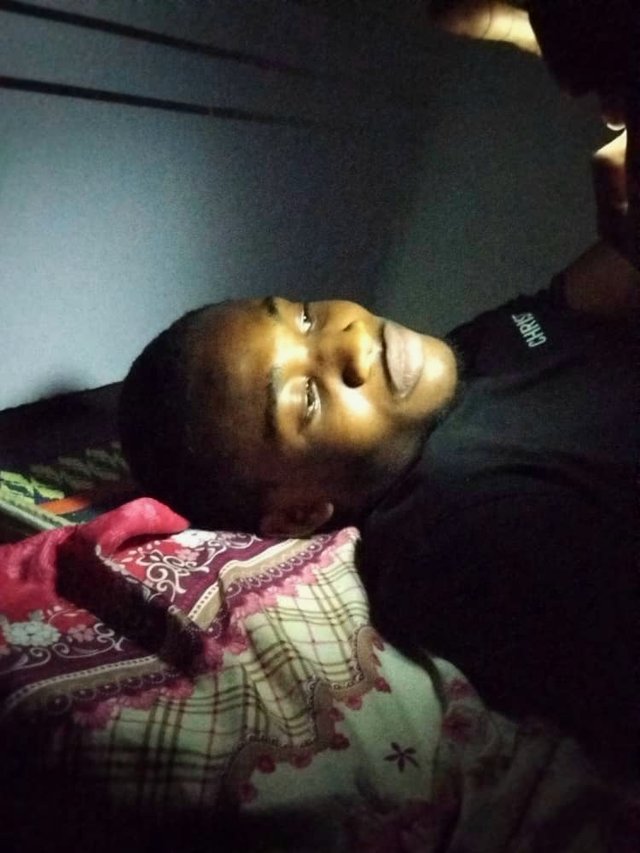Digital Detox: How Screens Quietly Steal Your Brain and Sleep
A picture of me moderately going through messages on my phone before sleeping.
Hello steemians 💙, let's dwell on our device habits today.
It’s midnight. You tell yourself: “I’ll just watch one more video.”
But then… One video becomes five, a scroll turns into a rabbit hole, and suddenly it’s 2 a.m. Boom, your alarm rings at 6 a.m., and you wake up exhausted. Tell me it hasn't happened to you 🌚🌚.
Screens have become our closest companions at work, school, business places, home, and even in bed. But here’s the hidden cost: too much screen time is rewiring your brain and stealing your sleep.
What do you think screen does to you?
1.The Dopamine Trap
Every ping, every “like”, and every short video gives your brain a tiny hit of dopamine (the feel-good hormone). Over time, your brain starts craving these hits constantly, just like sugar or caffeine. That’s why it feels so hard to put your phone down. In a sense, addiction sets in.
2.Shrinking Attention Span
Ever noticed you can’t read a book for 10 minutes without reaching for your phone or even falling asleep? That’s not a coincidence. Constant scrolling trains your brain to expect quick, endless stimulation and sends off long focus.
3.Anxiety on Demand
Social media shows you everyone’s “best life”, and news feeds bombard you with negativity. Without realising, your brain absorbs all this, leaving you stressed, restless, and sometimes even depressed due to what you've seen.
The Silent Killer: Sleep
Blue Light Lies
Screens emit blue light, tricking your brain into thinking it’s still daytime. This blocks melatonin (the sleep hormone), making it hard for you to fall asleep.Shallow Sleep
Even if you eventually fall asleep, your brain doesn’t enter deep rest cycles easily. That’s why you wake up groggy, not refreshed.Midnight Scroll = Stolen Hours
How many times have you checked your phone at midnight, “just for a second”, and lost an hour? This constant stimulation activates your brain’s alert system, the exact opposite of what you need before bed.
Addicted red flags |
|---|
You check your phone before even getting out of bed.
You panic when the battery drops below 20%.
You spend more time scrolling than talking to people around you.
You sacrifice sleep for late-night Netflix or TikTok.
If you happen to do at least 2 of these, you may need a detox.
7 Steps to start your digital detox |
|---|
1.Screen Curfew
No screens 1 hour before bed. Use that time for stretching, reading journals, or just being still.
2.Having meals without devices
Keep phones off the dining table. Use mealtime to connect with family or simply just enjoy your food.
3.Blue light filters
Turn on night mode on your device or use glasses that block blue light. Your eyes (and sleep) will thank you.
4.20-20-20 Rule
Every 20 minutes, look at something 20 feet away for 20 seconds. It's a form of exercise which prevents eye strain.
5.Notification Detox
Turn off non-essential alerts. Fewer pings bring about fewer cravings to check your phone.
6.Have no-phone zones.
Keep your bedroom and bathroom gadget-free.
7.Substitute don't just remove.
Instead of just scrolling, replace that time with nice hobbies like reading, cooking, or even calling a loved one.
Conclusion |
|---|
Technology isn’t the enemy. The problem is letting it take control of us instead of us controlling it.
A digital detox doesn’t mean throwing away your phone. Rather, it means creating healthy boundaries so you can:
Sleep deeper. 😴
Focus longer. 🧠
Feel calmer. 🌱
Connect better. ❤️
Try this; you'll be happy to wake up refreshed, read without distractions, and have enough energy all day.
YOUR HEALTH IS IN YOUR HANDS |
|---|

https://x.com/Daniel171919369/status/1967709926593319014?t=f8D0GvZMipspevntln06Zg&s=19
Upvoted! Thank you for supporting witness @jswit.